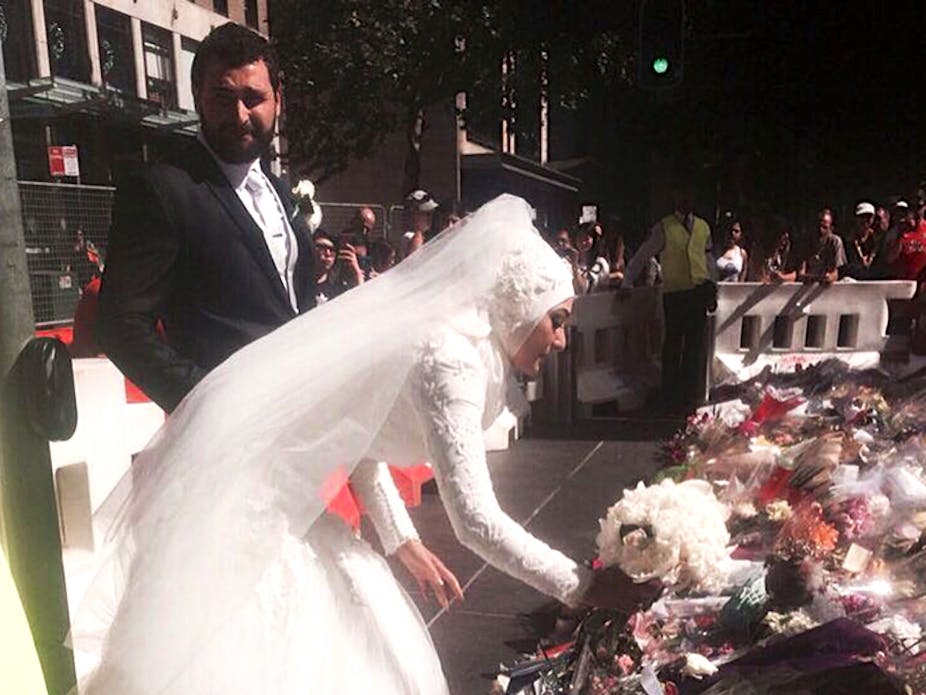Prime Minister Tony Abbott could not resist using his national security statement to vilify Muslims. If three words could describe the parts of his statement last Monday that talked about Muslims and their faith, those words would have to be: insulting, provocative and divisive.
Abbott said:
I’ve often heard Western leaders describe Islam as a ‘religion of peace’. I wish more Muslim leaders would say that more often, and mean it.
How derogatory and inflammatory those words are. Whatever Abbott may think or believe, those Western leaders are right. Islam teaches tolerance and peace, just like the other great faiths. Surely, the world’s second-largest religious tradition after Christianity could not preach hatred and violence for more than 1400 years and still be followed by 1.6 billion people – 23.2% of the world’s population as of 2010.
The deliberate conflation of the entire Muslim community and their religion with the despicable acts of a few is nothing new. The West’s favourite bogeyman has been the Muslim and Abbott is offering no alternative view.
Trying to whip up Australians into a mass frenzy against a threat identified as Muslim does not help promote security and social cohesion, nor does it portray Abbott as someone who wants to deliver “good government”.
If Abbott is hostile to half a million of his own people, then he must be a divisive leader. He should heed the wisdom in the old saying, “Every pea helps to fill the pod”.
The collective blame game
Abbott could take a leaf out of the book of those Australians who, in the wake of the Martin Place tragedy in Sydney, chose not to demonise an entire community for the act of a vile and sick individual. On the contrary, they did the right thing by separating an individual from a community and a faith, and by promoting an inclusive unity.
Abbott said last week:
Everybody, including Muslim community leaders, needs to speak up clearly because, no matter what the grievance, violence against innocents must surely be a blasphemy against all religion.
While Abbott’s statement is true, he seems to engage in indirectly apportioning a large part of the blame to the Muslim community for not doing enough. Why is it so important that Muslims come out and shout from the rooftops their abhorrence of violence every time some disgruntled or deluded individual who happens to be a Muslim does something horrible?
Every individual act cannot be a collective responsibility or result in collective guilt unless the community encourages, supports or facilitates the act. No-one in their right mind would suggest that there is any evidence anywhere in the world to implicate the entire Muslim community in terrorism. A Pew Research Centre study has shown that clear majorities of Muslims in most countries strongly reject violence, including suicide bombing, in the name of their religion.
The widespread allegations of child sexual abuses in schools and by Catholic priests have not led anyone to question the teachings of Christianity or Australian values, and rightly so. Isn’t it a waste of gunpowder to fire at the man in the moon? Why is it always different when it comes to judging Islam and the Muslims?
Abbott also said:
Many are angry because all too often the threat comes from someone who has enjoyed the hospitality and generosity of the Australian people.
Isn’t the prime minister clearly referring here to the migrant and/or refugee communities? This comment – as well as his linking of Australian aid to Indonesia after the 2004 tsunami with the call to halt the executions of Australian Bali Nine duo Andrew Chan and Myuran Sukumaran – makes it plain that graciousness is not one of Abbott’s strong points.
Can the prime minister clarify what he means when he vows action against “hate preachers”? Is his definition so narrow that it covers just Muslims, or is it broad enough to include anybody who expresses and practises hatred toward someone on account of that person’s colour, race, nationality (including citizenship), ethnic or national origin, or religion with the intention to harass, alarm, or distress?
After the government’s failed attempt to repeal hate-speech provisions in the Racial Discrimination Act, one is left with the impression that Abbott is cherry-picking here.
He who holds the ladder is as bad as the thief. Therefore, Abbott must be careful with his runaway rhetoric lest it fuels more animosity toward Muslims in Australia. He should realise that playing the Muslim card neither displays Australian values nor bodes well for this great multicultural country. Abbott should start behaving like a leader of this nation and its people, including Muslims.
This article was co-authored by Mahjabeen Ahmad, an Australia-based independent researcher and policy advocate who was formerly a professor of business administration at the University of Dhaka, Bangladesh. The key area of her interest is issues confronting Muslims living in the West.

